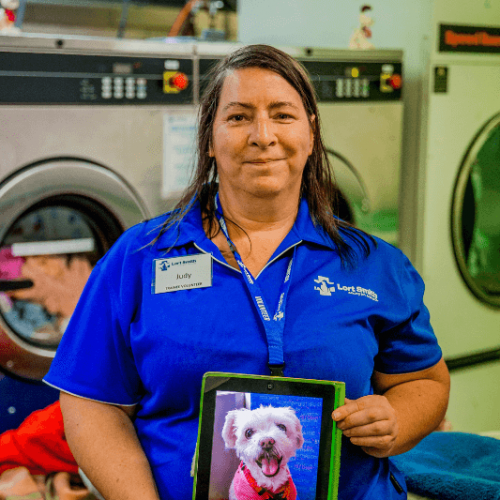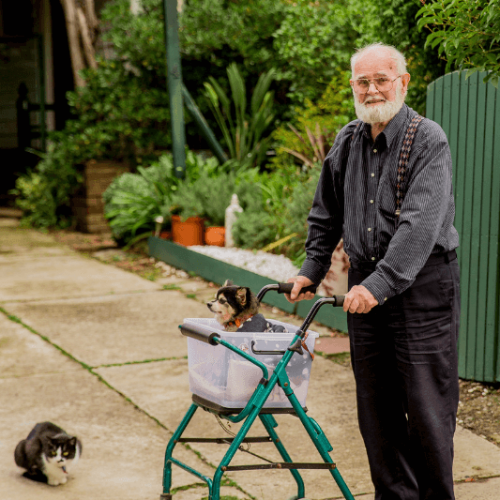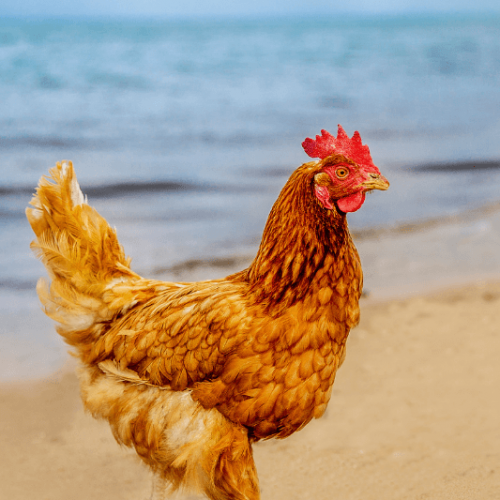Maintaining healthy teeth and gums is important for the wellbeing of your pet. Preventative measures are recommended from an early age to ensure that your pet’s teeth stay clean and healthy for all of its life. Poor dental health resulting in infected gums, tartar build up or rotten teeth can lead to more widespread problems because bacteria can enter the blood stream and infect vital organs such as the heart or kidneys.
Some of the preventative and maintenance measures that can be undertaken by pet carers include:
Tooth brushing
This is the most effective means of controlling plaque and tartar. Not all pets will tolerate this, however if started early it can be rewarding for carers who have time and patience. Specifically designed toothbrushes and toothpastes should be used. Do not use human toothpaste.
Dental Food
There are very specific dental diets that are clinically proven to help reduce plaque, tartar and stains. The food is designed to actually clean the teeth as the animal crunches down onto it, acting like a toothbrush to scrub the surface of the teeth. It is important to be aware that it is a myth that any type of dry food will clean your pet’s teeth. The food must be uniquely formulated in order to provide the teeth-cleaning function.
Chewing
There are many chew treats available that may help with the mechanical cleaning of the teeth by scraping off plaque and tartar as your pet chews. Pet carers should ensure that these chew treats do not splinter or create a risk of choking due to their size. Greedy dogs can be especially at risk of choking as they tend to gulp or swallow their food with little chewing.
Bones
Even though raw bones are often recommended as a method of maintaining dental health, they should be used in moderation and with caution. The risks associated with giving raw bones to your pets include fractured teeth, constipation, splintering of bones into shards that can damage internal organs or perforate the stomach or bowel, blockages of the oesophagus or gut, and choking. Furthermore, the bone marrow is very fatty and can cause intestinal upsets or even a condition called pancreatitis if the pet is particularly sensitive to excessive fats. Cooked bones should never be given under any circumstance as they easily splinter, resulting in higher risks of the problems described above.
Signs of dental problems
One of the first signs you might notice when your pet has dental or gum problems is halitosis, or bad breath. Other signs as the problems advance could be reluctance to eat hard foods or lack of interest in chewing their treats or toys. In some cases, they may also notice bleeding from the mouth. Some animals chew on one side more than the other and may have perfect teeth and gums on one side, but nearly all rotten teeth on the opposite site.
We recommend a heath check if you have any concerns about your pet’s oral health. If the conservative at-home methods described above are not successful, we may have to book your pet in to have a dental procedure under anaesthetic.
Dental Procedures
The duration and complexity of a dental procedure will vary according to the severity of your pet’s dental problems. Dental procedures involve removal of any plaque or tartar from the teeth, followed by teeth polishing. This may be all that is required in early cases.
More advanced problems involve extraction and removal of any teeth that are decayed, loose or fractured. All remaining teeth that are still healthy are then given a clean and polish. Where major extractions are needed, sometimes the gums are stitched closed to protect the tooth socket and prevent any food from impacting it.
We suggest avoiding any hard foods or any particularly soft or mushy foods for your pet for the first couple of weeks after it has had a dental procedure.
Fees and Payments
Lort Smith provides high-quality affordable animal health care to the whole community. By choosing Lort Smith Animal Hospital you are: providing your pet with expert care; offsetting the cost of vet care to people experiencing hardship; and contributing to the rehabilitation of vulnerable animals.
Please arrive 15 minutes early to allow for parking and checking-in at reception.
For more information – View our fees and payment options
Emergency Consultations (Fees & Payments)
Consulting Fees (Fees & Payments)
Our stories
Countless colourful interactions occur every day at Lort Smith. While our community is incredibly diverse, we share one commonality – a love of our pets, and a deep respect for the human-animal bond.
Enjoy our stories




